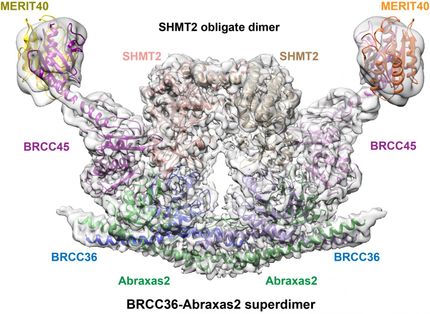Bavarian Nordic's Immunotherapy Product Candidate CV-301 Shows Promise in Breast and Ovarian Cancer
Bavarian Nordic A/S announced that encouraging clinical trial results with CV-301 in patients with metastatic breast or ovarian cancer were published in Clinical Cancer Research. Through an expanded collaboration with the National Cancer Institute (NCI) and license with the National Institutes of Health (NIH), the Company obtained rights to CV-301, an off-the-shelf cancer immunotherapy product candidate for multiple cancers, in October 2011.
The NCI-funded study enrolled 26 heavily pretreated patients with metastatic breast or ovarian cancer and assigned them to monthly vaccinations with CV-301. Among the 12 patients with breast cancer, median time to progression (TTP) was 2.5 months and median overall survival (OS) was 13.7 months. One breast cancer patient had a complete response and remains on study for 37 months or more. For the 14 patients with ovarian cancer, median TTP was 2 months and median OS was 15 months. Treatment with CV-301 was well tolerated, with mild injection-site reactions representing the most common side effect.
"Approval of the first active immunotherapy for cancer by the U.S. Food and Drug Administration provided definitive proof-of-concept for this class of agents and further demonstrated that overall survival, rather than time to progression or tumor shrinkage, may be a more relevant clinical endpoint in evaluating the effects of immunotherapies," said Reiner Laus, President of the Cancer Vaccine Division. "The sustained benefit seen in some patients receiving CV-301 provides additional insight into the potential of this therapeutic vaccine and we look forward to results from an ongoing randomized Phase 2 study of CV-301 in patients with metastatic breast cancer."
CV-301 originates from the same poxvirus technology platform as PROSTVAC®, the Company's lead product candidate. While PROSTVAC® incorporates a single antigen overexpressed in prostate cancer (PSA), CV-301 incorporates two antigens (CEA and MUC-1) that are overexpressed in other major cancers, including breast, lung, and ovarian, which makes CV-301 potentially applicable in various cancers. CV-301 is currently the subject of an NCI-sponsored, randomized Phase 2 study of docetaxel (chemotherapy) alone or in combination with CV-301 in metastatic breast cancer.
Organizations
Other news from the department research and development

Get the life science industry in your inbox
By submitting this form you agree that LUMITOS AG will send you the newsletter(s) selected above by email. Your data will not be passed on to third parties. Your data will be stored and processed in accordance with our data protection regulations. LUMITOS may contact you by email for the purpose of advertising or market and opinion surveys. You can revoke your consent at any time without giving reasons to LUMITOS AG, Ernst-Augustin-Str. 2, 12489 Berlin, Germany or by e-mail at revoke@lumitos.com with effect for the future. In addition, each email contains a link to unsubscribe from the corresponding newsletter.
























































